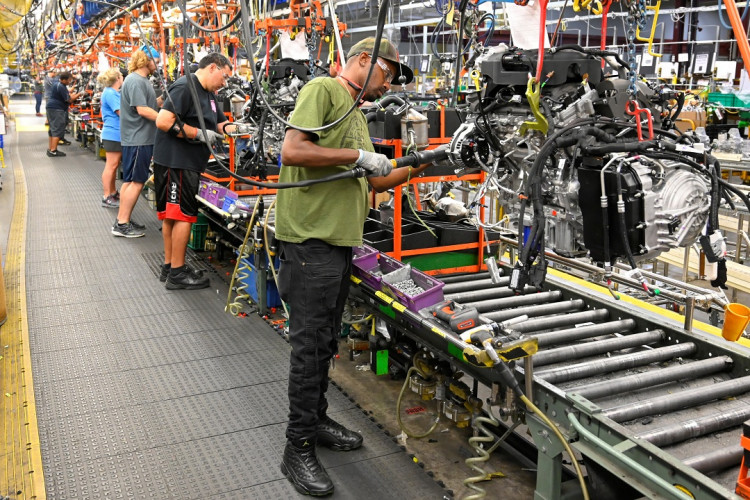Amid escalating tensions with the United Auto Workers (UAW) union, General Motors (GM) has fortified its financial position by securing a new $6 billion line of credit. This strategic move comes as the automaker anticipates prolonged and potentially expanded strikes by the UAW.
Paul Jacobson, GM's CFO, in a conversation with CNBC's Phil LeBeau, highlighted the prudence of this decision. He remarked, "The facility we announced today is a $6 billion line of credit that I think is prudent in light of some of the messages we've seen from some of the UAW leadership that they intend to drag this on for months."
The ongoing targeted strikes have already inflicted a financial blow to GM, costing the company $200 million during Q3. A GM spokesperson attributed this significant cost to lost production on wholesale volume. The genesis of these disruptions can be traced back to the UAW's initial strike on September 15 at GM's midsize truck and full-size van plant located in Wentzville, Missouri. Since then, the strike's scope has broadened, encompassing GM's parts and distribution facilities across the nation. By the end of September, the ripple effects of the strike reached a crossover plant in mid-Michigan.
The Missouri strike's repercussions didn't end there. It also led GM to halt operations at its Fairfax Assembly Plant in Kansas, a facility responsible for producing the Cadillac XT4 SUV and the Chevrolet Malibu sedan. This decision resulted in nearly 2,000 workers being laid off.
The ongoing tussle between GM and the UAW has seen its fair share of public spats. Both GM CEO Mary Barra and Ford Motor CEO Jim Farley have openly criticized UAW President Shawn Fain and the union's approach to the strikes. Barra, in a recent statement, expressed her frustration, stating, "It's clear that there is no real intent to get to an agreement. It is clear Shawn Fain wants to make history for himself, but it can't be to the detriment of our represented team members and the industry."
In response, Fain has consistently emphasized the union's readiness to negotiate around the clock. He has also accused the automakers of deliberately stalling the negotiation process.
The terms of GM's new credit line mandate the company to maintain a minimum of $4 billion in global liquidity and $2 billion in U.S. liquidity. Additionally, the credit agreement imposes restrictions on GM, including prohibitions on mergers, sales of assets, and limits on incurring new debt. As of the end of June, GM reported its total automotive liquidity to be $38.9 billion.
This financial move by GM mirrors a similar strategy adopted by Ford, which secured a $4 billion credit line over a month ago to navigate the "uncertainties" in the market.




